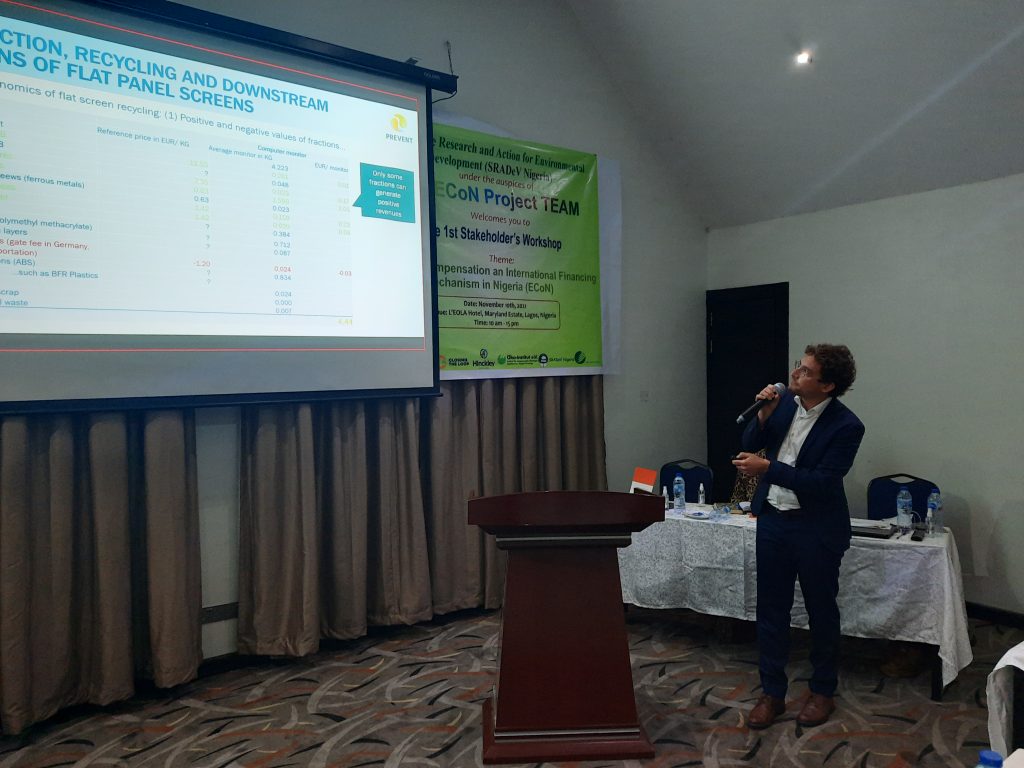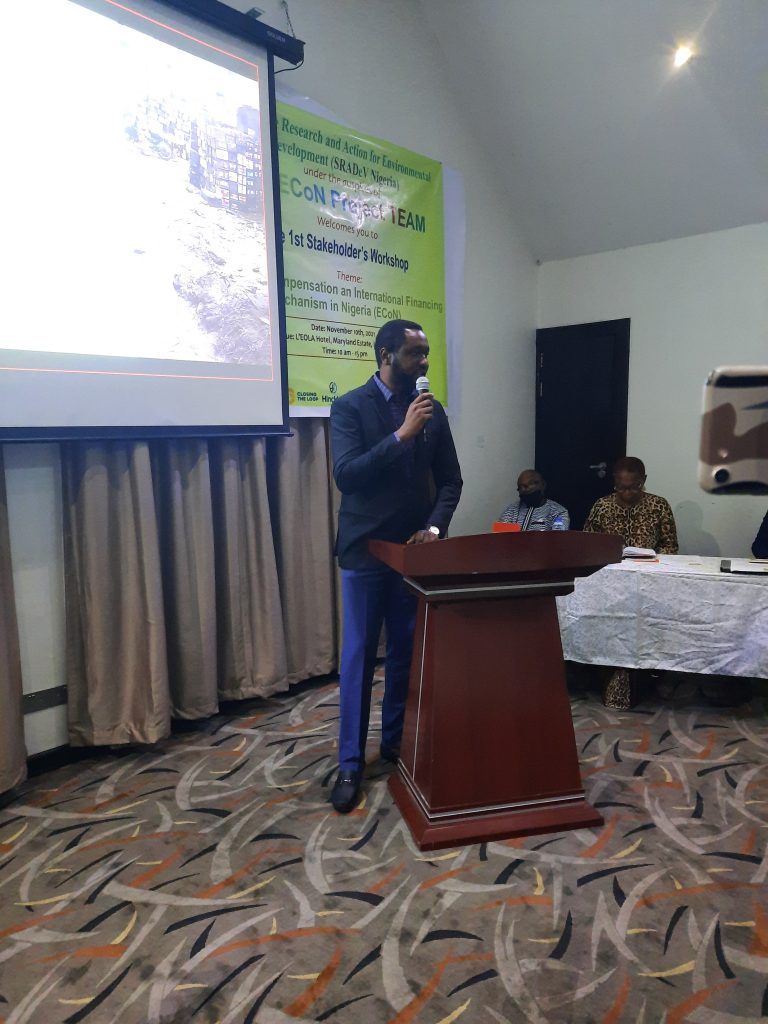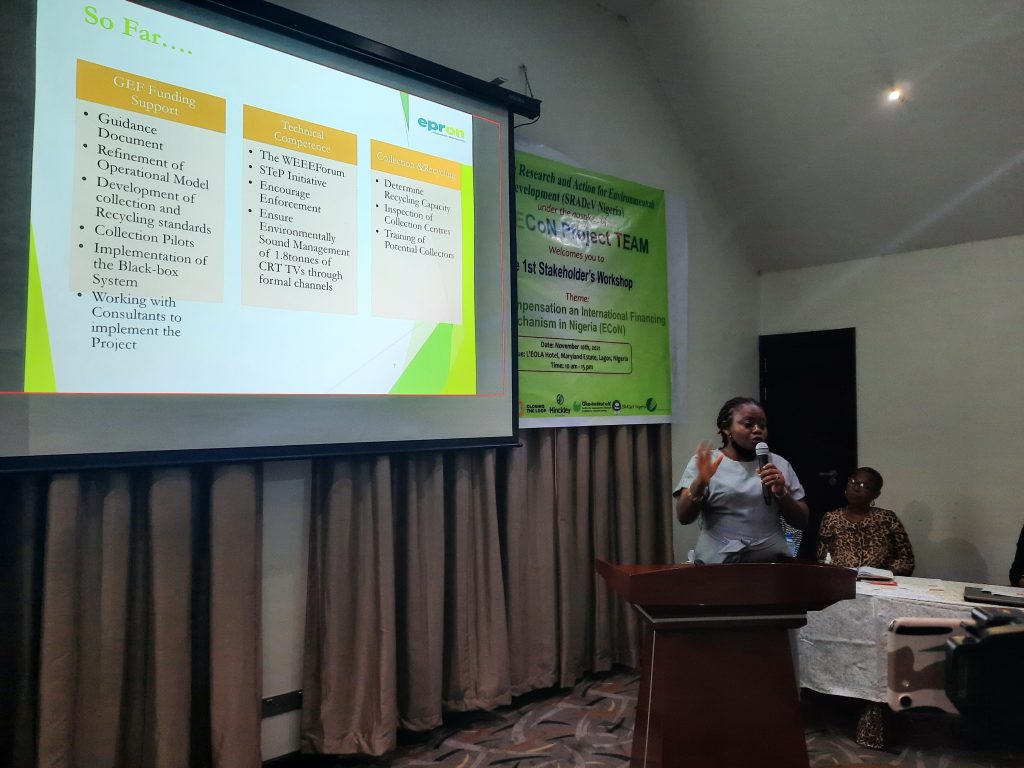SRADeV Nigeria; on the 10th of November, 2021 hosted the 1st ECoN Stakeholder’s workshop to familiarize stakeholders with the concept and status of the pilot project. The project which aims at extending “e-waste compensation” to Li-ion batteries and flat panel displays allowing the support of environmental friendly collection and treatment in Nigeria and beyond had its first stakeholders meeting which presented the initial outcomes of the feasibility studies in the collection, sustainable recycling and downstream options of end-of-life batteries and flat panel displays.
Dr. Gilbert Adie in his presentation about the status of E-waste collection and recycling in Nigeria and the implications for EPR and ECoN Models. He highlighted that his research shows that the informal recycling sector is well organized, collects all categories of e-waste and metal scraps, the collectors are funded daily or weekly to deliver an agreed number of specified fractions and that most primary collectors work for middlemen engaged by brokers who are mostly Chinese. These identified structures are why the informal operators dominate 0ver 97% of the e-waste recycling sector. He then posited that for the EPR and ECoN Models aimed at improving the status of formal recycling of e-waste in the country, they can easily be adopted in Business-2-Business operations, they need initial seed funding to kick-start the models.
Ibukun Faluyi and Terseer Ugbor who represented EPRON and ARBR respectively, gave their reflections on the ECoN Project highlighting that its goals are aligned, have similar downstream models, and are highly complementary in Nigeria as objectives align succinctly with environmentally sound management, circular economy, developing local recycling capacity.
Tobias Schleicher highlighted the financial implications of formal recycling, stating that the compensation fee from the ECoN Pilot project of 5.00 will bring the balance of revenue, cost of fraction sales to -0.67 from its previous deficit of 5.67. He stressed that this model is to show the possibility of improving formal recycling of e-waste which can then be scaled up when there are more financial investments. He concluded that connecting the ECoN Model to the EPR Model will provide an impulse to support the implementation of the EPR scheme.

The workshop was well attended by representatives from government ministries, departments, and agencies such as the Federal Ministry of Environment, Standards organization of Nigeria, NESREA, Lagos State Ministry of Environment, Lagos State Waste Management Authority, and Lagos State Environmental Protection Agency who are crucial in waste management in Nigeria. Civil Society Organisations present at the workshop were Pan African Vision for the Environment and Nature Care resource center. Battery and E-waste recyclers such as MRI Investments, Alton Nigeria, Falcons solutions, JMG Limited, Recycle Points were also in attendance.

The workshop ended with general discussions and next steps such as feasibility for ESM of Li-ion batteries and flat panel displays to be ready by end of 2021 and Waste compensation for the monitors and/or batteries to be launched by 2022. Dr. Leslie Adogame gave a resounding vote of thanks to all participants and assured continuous efforts to the success of the pilot project.
Media Coverage: https://youtu.be/VheoEXj4MaE




